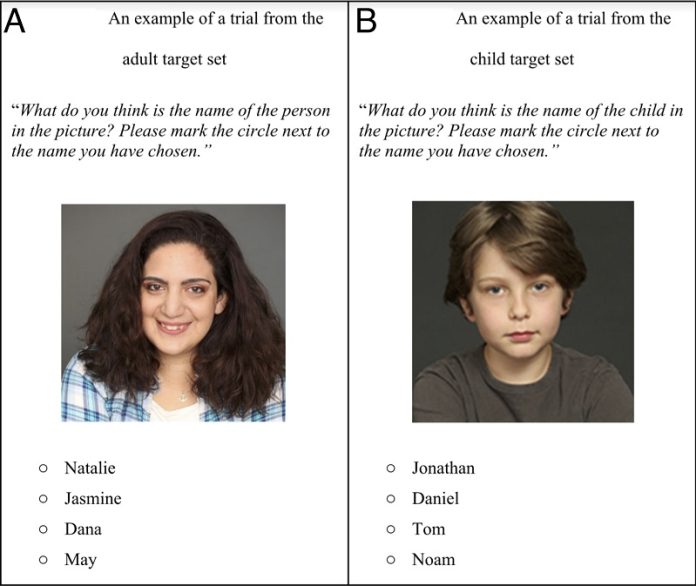
A new study suggests that a person’s face may evolve to suit their name.
The research aimed to discover whether parents choose a name that fits their baby’s appearance or if, over time, a person’s face changes to match their given name.
The study was published in the journal Proceedings of the National Academy of Sciences and was led by Dr. Yonat Zwebner, Dr. Moses Miller, and Prof. Jacob Goldenberg of Reichman University’s Arison School of Business, along with Noa Grobgeld and Prof. Ruth Mayo of the Hebrew University.
In the study, children aged 9 to 10 and adults were asked to match faces to names.
The results showed that both children and adults could correctly match adult faces to their names more often than by chance.
However, they could not accurately match children’s faces to their names.
In another part of the study, a machine learning system analyzed a large database of human faces. The computer found that adult faces with the same name were significantly more similar to each other than faces with different names.
On the other hand, there was no significant similarity among children’s faces with the same name compared to those with different names.
The researchers concluded that the similarity between a person’s face and their name results from a self-fulfilling prophecy. Over time, a person’s appearance changes to align with social stereotypes associated with their name.
These stereotypes can form in many ways, such as being linked to a famous person or the connotations of a biblical name.
Dr. Yonat Zwebner from the Arison School of Business at Reichman University explained, “Our research highlights the broader significance of this surprising effect—the profound impact of social expectations. We have demonstrated that social constructs, or structuring, do exist—something that until now has been almost impossible to test empirically.”
According to Dr. Zwebner, social structuring is powerful enough to influence a person’s appearance. These findings suggest that other personal factors, such as gender or ethnicity, may also shape who people become.
In summary, this fascinating study reveals that our names may have a more significant impact on us than we previously thought. The social expectations tied to our names could influence our appearance over time, highlighting the powerful role of societal perceptions in shaping who we are.



